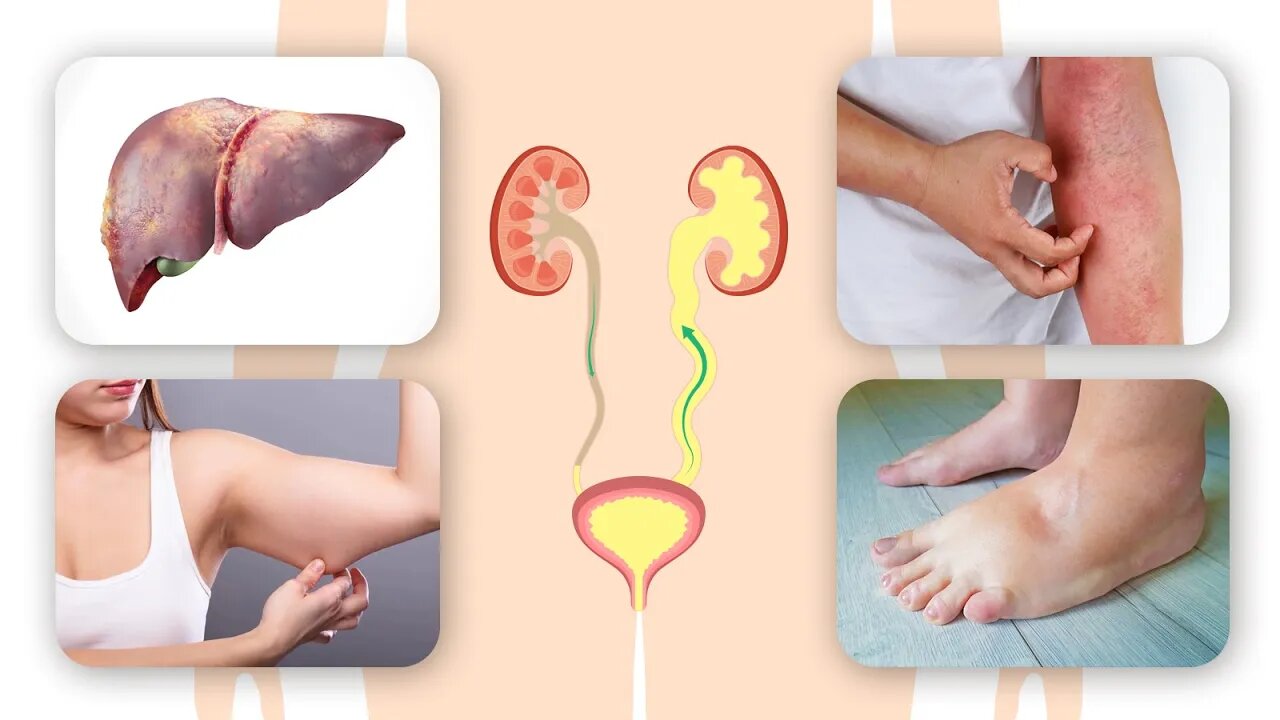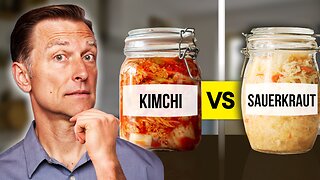Premium Only Content

The Dangers of Urinary Retention on Your Kidneys
Learn more about the top causes of urinary retention and the potential solutions.
For more details on this topic, check out the full article on the website: ➡️ https://drbrg.co/3WFKg5E
DATA:
https://pubmed.ncbi.nlm.nih.gov/29385990/
https://patents.google.com/patent/US9452191B2/en
https://www.ncbi.nlm.nih.gov/pmc/articles/PMC4631470
https://www.ncbi.nlm.nih.gov/pmc/articles/PMC3547179/
https://www.ncbi.nlm.nih.gov/pmc/articles/PMC1578535/
https://www.ncbi.nlm.nih.gov/pmc/articles/PMC2897743/
0:00 Introduction: What is urinary retention?
0:55 Complications of urinary retention
2:48 What causes urinary retention?
5:40 What to do for urinary retention
9:06 Check out my video on the kidneys!
Let’s talk about urinary retention and cover a few natural things you can do about it.
Urinary retention is a situation where your bladder is not releasing all of your urine. Urine that’s retained can back up in your system and potentially lead to a lot of complications.
These complications can include:
• Edema
• A loss of protein in your urine
• A build-up of ammonia (strong ammonia-smelling urine)
• Sugar in your urine
• Loss of muscle
• Fatigue
• Itchiness
• Brain fog
Diabetes is a big cause of urinary retention. High levels of sugar damage the capillaries of the kidneys and can lead to permanent damage. On top of that, a person with diabetes typically consumes a high-carb diet, which can cause fluid retention.
Common causes of urinary retention:
• Diabetes
• A high-carb diet
• Age
• An enlarged prostate
• Fibroids
• Excess sodium consumption with low potassium consumption
• A problem with the autonomic nervous system
• Pregnancy
• Kidney stones
• Bladder stones
• Certain medications
What to do for urinary retention:
1. Cut out carbs and sugar
2. Increase your fluids (3 liters in the first part of the day)
3. Consume herbal diuretic alternatives (dandelion greens and watercress)
4. Consume more potassium foods or an electrolyte powder (at least seven cups of vegetables per day)
5. Consume a moderate amount of protein (3-6 oz per meal)
Dr. Eric Berg DC Bio:
Dr. Berg, age 56, is a chiropractor who specializes in Healthy Ketosis & Intermittent Fasting. He is the author of the best-selling book The Healthy Keto Plan, and is the Director of Dr. Berg Nutritionals. He no longer practices, but focuses on health education through social media.
Follow Me On Social Media:
Facebook: https://bit.ly/FB-DrBerg
Instagram: https://bit.ly/IG-DrBerg
Anchor: https://bit.ly/Anchor-DrBerg
TikTok: https://bit.ly/TikTok-DrBerg
Send a Message to his team: https://m.me/DrEricBerg
ABOUT DR. BERG: https://www.drberg.com/dr-eric-berg/bio
Disclaimer:
Dr. Eric Berg received his Doctor of Chiropractic degree from Palmer College of Chiropractic in 1988. His use of “doctor” or “Dr.” in relation to himself solely refers to that degree. Dr. Berg is a licensed chiropractor in Virginia, California, and Louisiana, but he no longer practices chiropractic in any state and does not see patients so he can focus on educating people as a full time activity, yet he maintains an active license. This video is for general informational purposes only. It should not be used to self-diagnose and it is not a substitute for a medical exam, cure, treatment, diagnosis, and prescription or recommendation. It does not create a doctor-patient relationship between Dr. Berg and you. You should not make any change in your health regimen or diet before first consulting a physician and obtaining a medical exam, diagnosis, and recommendation. Always seek the advice of a physician or other qualified health provider with any questions you may have regarding a medical condition.
#keto #ketodiet #weightloss #ketolifestyle
Thanks for watching! I hope this helps you better understand urinary retention and what you can do about it.
-
 6:59
6:59
Dr. Eric Berg
1 day agoThe Battle of the Cabbages
6.12K13 -
 2:13:07
2:13:07
vivafrei
9 hours agoEp. 243: HOLIDAY SPECIAL! The Great H1B Visa Debate! Jay z Gets Scorched! Attack in Germany! & MORE!
119K268 -
 16:40
16:40
Russell Brand
11 hours agoTHIS MASSIVELY BACKFIRED...
135K474 -
 25:41
25:41
SB Mowing
15 hours agoPICTURE living next to THIS and not knowing what to do…
82.8K31 -
 2:16:01
2:16:01
George Galloway
1 day agoNEW YEAR COUNTDOWN - MOATS with George Galloway - EP 408
99.7K145 -
 18:39
18:39
Stephen Gardner
10 hours ago🔥BREAKING! Trump's SHOCKING New Demand | Biden admits DOJ TARGETED Trump Illegally!
78.1K378 -
 1:20:23
1:20:23
Josh Pate's College Football Show
16 hours ago $14.23 earnedCFP Prediction Special: OhioSt vs Oregon | UGA vs Notre Dame | Texas vs ASU | Boise vs PennSt
108K6 -
 7:50:03
7:50:03
Scottish Viking Gaming
14 hours ago💚Rumble :|: SUNDAY FUNDAY :|: Virginia has two Verginers, Change my Mind!
117K18 -
 1:49:50
1:49:50
Winston Marshall
2 days agoThe DARK Reality of Socialism - Historian Giles Udy
92.4K87 -
 1:09:28
1:09:28
Sports Wars
13 hours agoBengals STAY ALIVE In OT Thriller, ESPN's Ryan Clark SLAMMED, NFL DESTROYS NBA On Christmas
75.9K12